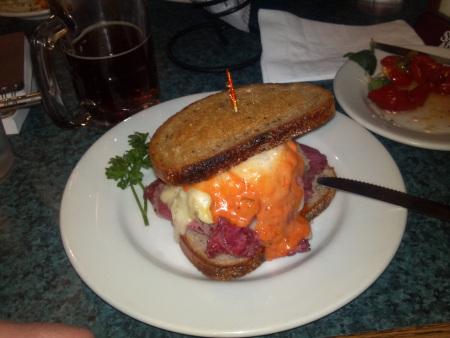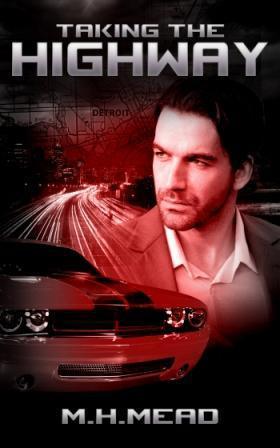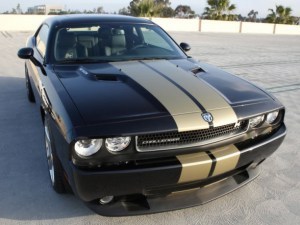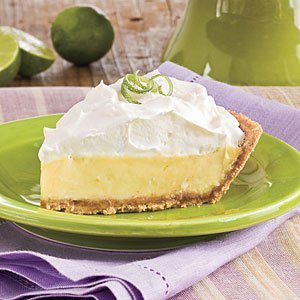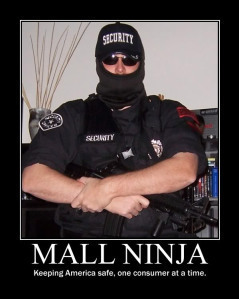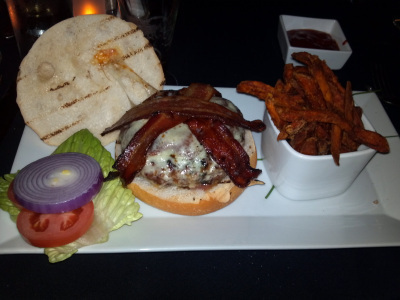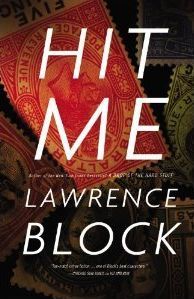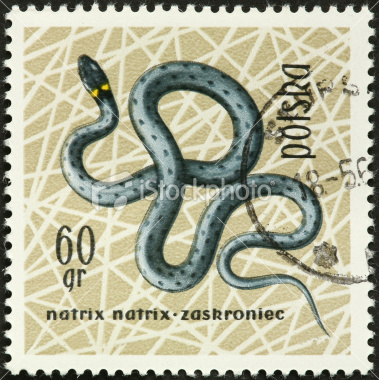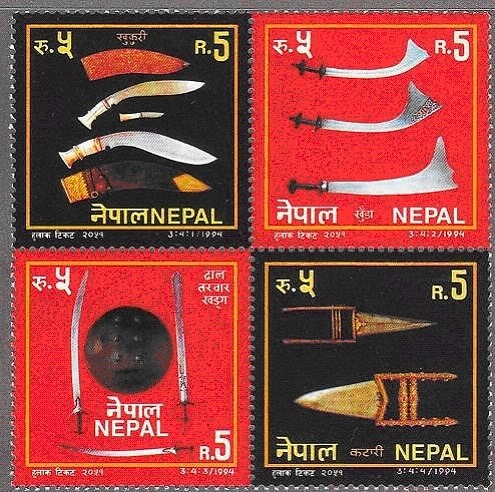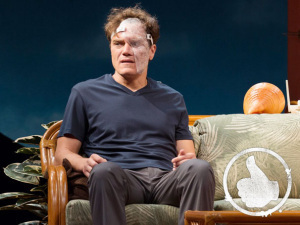Thomas Pluck's Blog, page 51
December 31, 2012
A day like any other
This was a good year for me. I hope it was for all of you, as well.
The second year of marriage with Firecracker, it’s an adventure I wish I’d undertaken earlier. We moved to a larger apartment on the top floor, took a road trip through New England to Prince Edward Island, and flew to Louisiana to visit family for Christmas.
My niece was born in October, a bright little star in our corner of the sky.
I did volunteer cleanup at a Newark high school and in the Far Rockaways, helping homeowners hit by Sandy.
I met friends new and old at BoucherCon in Cleveland, and just the other day I met my 2nd grade teacher, Ms. Foote, for coffee and memories. She told me that one morning, I brought a newspaper to class to warn everyone about a rapist on the loose in the next town. I haven’t changed all that much in thirty-two years, apparently.
On the writing front, I published Protectors: Stories to Benefit PROTECT, the product of a year of hard work collaborating with many writers I revere and respect. In two months we’ve nearly outsold what the first Lost Children anthology made in a year, so I’d say it’s a success. I had stories in several anthologies, including Nightfalls, Shotgun Honey Presents, Hills of Fire, Beat to a Pulp: Superhero, and Uncle John’s Bathroom Reader: Flush Fiction. My stories appeared in Needle: A Magazine of Noir, PANK Magazine, Crime Factory, Stupefying Stories, Noir Nation, Yellow Mama, All Due Respect, Grift Magazine, Burnt Bridge, Pulp Metal, Shotgun Honey, and Spinetingler.
I began interviewing people here, and with Lawrence Block, Wayne Dundee and Patricia Abbott on the books, I’m wondering if I can top it next year.
There was, as always, sadness to spare. My great-uncle Jimmy was diagnosed with cancer, and is in the VA hospital for care. His brother Butch had another stroke, and is recovering at home. Both veterans of World War 2, they have been an inspiration for all of my life. I grew up hiding beneath the kitchen table at my grandmother’s house, listening to them, my uncle Paul, my mother and family talk and joke and commiserate. They are still with us. They’re a strong pair, brothers in the Depression. Their stories inform everything I write, and do.
But I have good news for the coming year. After all, New Year’s Day is just a day like any other, imbued with power from our hope that the cold death of winter will soon pass and the sun’s warm gaze will fall on us once more.
I joined the International Thriller Writers organization, and wrote my first interview for their website, The Big Thrill. I will announce here when it goes live. I will have stories in Big Pulp, DOA II, Oh Sandy!, and Hoods, Hot Rods, and Hellcats. I will complete my novella, Blade of Dishonor, for Beat to a Pulp press. It’s a doozy, and I think you’ll like it. I also have two other announcements that will have to wait. Not a book deal. I haven’t had time to complete the next draft of Bury the Hatchet with all this going on, but I have been working out the story problems nearly ever day. It will be complete by June. That is my Writer’s Resolution for the next year, now that I have repaid all my debts.
What are your goals and hopes for the coming year?
As uncle Butch would say … another year, shot in the ass.
Tagged: New Year's Eve



December 27, 2012
Belly Up to the Bar with Gerald So
Gerald So is the editor of The 5-2: Crime Poetry Weekly, a founder of Font, Hofstra University’s literary magazine, and both the former president of the Short Mystery Fiction Society and editor at Thrilling Detective. His poetry has appeared in Babaric Yawp, Defenestration, and Yellow Mama, as well as in Protectors: Stories to Benefit PROTECT.
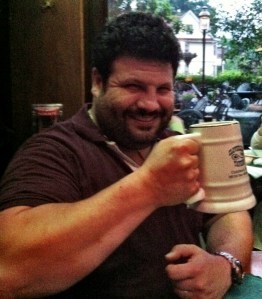 TP: Welcome to Belly Up to the Bar, Gerald. What can I get you?
TP: Welcome to Belly Up to the Bar, Gerald. What can I get you?
 TP: I bet Crime Poetry still raises some eyebrows, even though you’ve been doing this a while. Which is odd, because writers like Ken Bruen are often given the title “noir poet” as a compliment. Tell us a bit about why poetry is so well suited for writing about crime.
TP: I bet Crime Poetry still raises some eyebrows, even though you’ve been doing this a while. Which is odd, because writers like Ken Bruen are often given the title “noir poet” as a compliment. Tell us a bit about why poetry is so well suited for writing about crime.
 GS: Because it is concise by nature, poetry has a sense of urgency much like crime fiction. Every word, every line elicits a reaction driving toward a larger goal. Much poetry can be read as originating from slights, wrongs, or more serious harm poets have experienced. Poetry encourages us to focus emotion as tightly and powerfully as we can.
GS: Because it is concise by nature, poetry has a sense of urgency much like crime fiction. Every word, every line elicits a reaction driving toward a larger goal. Much poetry can be read as originating from slights, wrongs, or more serious harm poets have experienced. Poetry encourages us to focus emotion as tightly and powerfully as we can.
 TP: Poetry in general is more distilled. I think it was Faulkner, but I’ve heard it attributed to both Joyce and Hemingway, who both wrote poetry, that every novelist is a failed poet. My friend Drew Fader, who is also in Protectors, has told me of days where he’s struggled over a single word. Is poetry that much of a struggle for you?
TP: Poetry in general is more distilled. I think it was Faulkner, but I’ve heard it attributed to both Joyce and Hemingway, who both wrote poetry, that every novelist is a failed poet. My friend Drew Fader, who is also in Protectors, has told me of days where he’s struggled over a single word. Is poetry that much of a struggle for you?
 GS: I struggle to gain perspective on my emotions and experiences, but that ultimately helps me as a person. To me, raw emotion on a page is too volatile to be a poem. The goal of any writing for publication is to reach an audience, and that requires refining one’s message to its most effective.
GS: I struggle to gain perspective on my emotions and experiences, but that ultimately helps me as a person. To me, raw emotion on a page is too volatile to be a poem. The goal of any writing for publication is to reach an audience, and that requires refining one’s message to its most effective.
 TP: You taught at Hofstra, but now you write full time. How did it feel to take that plunge? I know fiction writers who’ve done it, and one tech writer and editor, but you’re the first poet. Do you write fiction or nonfiction as well, to pay the bills?
TP: You taught at Hofstra, but now you write full time. How did it feel to take that plunge? I know fiction writers who’ve done it, and one tech writer and editor, but you’re the first poet. Do you write fiction or nonfiction as well, to pay the bills?
 GS: My last teaching position was downsized, so I was sort of forced into writing full time, but it also felt like the natural next step. I also write fiction and reviews of books, TV, and film, and I create poetry ebooks because so few seem to make the effort to preserve poetic lines.
GS: My last teaching position was downsized, so I was sort of forced into writing full time, but it also felt like the natural next step. I also write fiction and reviews of books, TV, and film, and I create poetry ebooks because so few seem to make the effort to preserve poetic lines.
 TP: I think poetry gets short shrift these days. Everyone knew Frost, just as Hemingway was popular in his time, but today it’s the genre writers that everyone knows. Stephen King, Harlan Coben, John Grisham. Do you think genre poetry could push the pendulum in the other direction?
TP: I think poetry gets short shrift these days. Everyone knew Frost, just as Hemingway was popular in his time, but today it’s the genre writers that everyone knows. Stephen King, Harlan Coben, John Grisham. Do you think genre poetry could push the pendulum in the other direction?
 GS: That would be nice. I honestly gave no thought to gaining attention when I began seriously writing poetry. It seemed to be the best form for some of my ideas, and now I can’t give up poetry in favor of fiction or any other kind of writing. It deserves my best, and as long as I’m here, I may as well try to advance its cause.
GS: That would be nice. I honestly gave no thought to gaining attention when I began seriously writing poetry. It seemed to be the best form for some of my ideas, and now I can’t give up poetry in favor of fiction or any other kind of writing. It deserves my best, and as long as I’m here, I may as well try to advance its cause.
 TP: You headed the Short Mystery Fiction Society, who give out the Derringer Awards. I prefer short stories for punch, and wish there were more wide-reaching venues for them. What are some of the best short crime fiction stories you’ve read, online or otherwise?
TP: You headed the Short Mystery Fiction Society, who give out the Derringer Awards. I prefer short stories for punch, and wish there were more wide-reaching venues for them. What are some of the best short crime fiction stories you’ve read, online or otherwise?
 GS: All-time favorites include Bill Pronzini’s Nameless Detective stories and Rob Kantner’s Ben Perkins. I like how Kantner weaves backstory between each Perkins story. I get the sense of a man living a full life. From my time editing Thrilling Detective, I enjoyed stories by Ray Banks, Russel McLean, Stephen D. Rogers, Sarah Weinman, Dave White, and Jim Winter.
GS: All-time favorites include Bill Pronzini’s Nameless Detective stories and Rob Kantner’s Ben Perkins. I like how Kantner weaves backstory between each Perkins story. I get the sense of a man living a full life. From my time editing Thrilling Detective, I enjoyed stories by Ray Banks, Russel McLean, Stephen D. Rogers, Sarah Weinman, Dave White, and Jim Winter.
 TP: I read a lot of Nameless, Pronzini was always a great read. I wrote some poetry in college. Mostly free verse, stream of consciousness stuff that for me, worked better as prose. But I enjoy a lot of poetry, from the Iliad to what Amiri Baraka calls “low ku,” a play on haiku. What modern poets should we be reading? In addition to the ones you publish in the 5-2, of course.
TP: I read a lot of Nameless, Pronzini was always a great read. I wrote some poetry in college. Mostly free verse, stream of consciousness stuff that for me, worked better as prose. But I enjoy a lot of poetry, from the Iliad to what Amiri Baraka calls “low ku,” a play on haiku. What modern poets should we be reading? In addition to the ones you publish in the 5-2, of course.
 GS: Of the top of my head: Sharon Olds, Kim Addonizio, Donald Justice, Edward Hirsch, Ada Limon, Sandra Beasley…
GS: Of the top of my head: Sharon Olds, Kim Addonizio, Donald Justice, Edward Hirsch, Ada Limon, Sandra Beasley…
 TP: I look forward to checking them out. Do you think comparing music and poetry is valid? Obviously they are not always the same, but can be. I think the music always wins over the lyrics. Example, “Born in the USA” being used patriotically, when it’s about a Vietnam vet getting treated like garbage by his country. Are there any musicians you’d honestly call poets?
TP: I look forward to checking them out. Do you think comparing music and poetry is valid? Obviously they are not always the same, but can be. I think the music always wins over the lyrics. Example, “Born in the USA” being used patriotically, when it’s about a Vietnam vet getting treated like garbage by his country. Are there any musicians you’d honestly call poets?
 GS: I do think it’s valid. The best poetry has musicality behind its words and structure. I’m not up on current music, but two names that come to mind are Don McLean and Jackson Browne.
GS: I do think it’s valid. The best poetry has musicality behind its words and structure. I’m not up on current music, but two names that come to mind are Don McLean and Jackson Browne.
 TP: It’s last call, my friend. What would be your last meal?
TP: It’s last call, my friend. What would be your last meal?
 GS: I’d go to an all-you-can-eat buffet. Is that cheating? Okay. I’d have a steak, baked potato, and root beer.
GS: I’d go to an all-you-can-eat buffet. Is that cheating? Okay. I’d have a steak, baked potato, and root beer.
 TP: Thank you for dropping by, Gerald. You opened my eyes to what poetry can do, and I hope this interview does the same for everyone reading it.
TP: Thank you for dropping by, Gerald. You opened my eyes to what poetry can do, and I hope this interview does the same for everyone reading it.
Tagged: Gerald So, Poetry



December 20, 2012
Your favorite Christmas album?
I joked that I got so high that I imagined Bob Dylan had made a Christmas album last year. And he did, of course, but it seemed almost surreal to me. Not to comment on the quality of the album–I like Dylan’s music, but find his manufactured persona maddening–but doesn’t a “Bob Dylan Christmas album” sound like a bad parody on Saturday Night Live, perhaps aired during a writer’s strike?
My favorite album is A Christmas Gift for You, aka “the Phil Spector Christmas album,” with the Ronettes and the lush-voiced Darlene Love. My mother hunted this down on vinyl in NYC in the ’80s, and we played it so much that to me, it’s not Christmas without it. I have it on vinyl and CD, and my dear wife tolerates my overplaying it. (I’m sure she’s going to strangle me some Christmas Eve, shouting “If I hear ring a ding ding a ding dong ding one more ring ding damn time!!”)
There are plenty of other good Christmas albums out there. I picked up the Charlie Brown Christmas album by the Vince Guaraldi trip on green vinyl this year.
What’s your favorite?
Tagged: A Christmas Gift for you from Phil Spector, Charlie Brown, Christmas, Vince Guaraldi, Vinyl



December 19, 2012
Fresh Kills: the Reuben at Harold’s NY Deli
Harold’s NY Deli is in New Jersey. There are a couple of them, actually. And like Ray’s Pizzas of New York, they are unaffiliated with each other. The Lyndhurst one is run by the guy who ran the Carnegie Deli in NYC, and my once favorite now-defunct diner, the Claremont.
While they may not be the best Jewish style deli restaurant around- my buddy Warren Bobrow can point you to Newark’s best- they are around the corner from where I work, and they make a damn tasty and enormous Reuben. So tender, so juicy, so flavorful. Whoever corned this beef had a way with meat.
This one is corned beef, and it is a junior. Yes, you can pay $43 for three pounds of meat that will serve a family of twelve, with free trips to “the world’s largest pickle bar” (my BS detector went off), and a loaf of rye with caraway seeds. It will be worth it.
This sandwich was twelve bucks or so. The meat was piled high. I did not want to look at food. It was the perfect size. I didn’t hate myself when I finished it, it was more of a mild disdain. Their pickles are forgettable and mushy, sadly. Smuggle in a jar of snappy Bah-Tampte half sour dills to make the experience complete.
This is a good Reuben. I’ve had them at Katz’s, the Carnegie, the Stage, Canter’s in Los Angeles. Not the best but a damn fine specimen.
Tagged: Harold's NY Deli, Jewish Deli, Reubens, Sandwiches



December 18, 2012
Belly Up to the Bar with M.H. Mead
M.H. Mead is the pen name of the writing duo of Margaret Yang and Harry R. Campion, authors of FATE’S MIRROR, THE CALINE CONSPIRACY, and most recently, the Motor City techno-thriller TAKING THE HIGHWAY. Detroit has become a commuter nightmare of dystopian proportions that gives us “fourths,” professional carpoolers needed to fill a car so you can ride in the HOV lane, and computer-controlled traffic patterns. As a fan of speculative fiction, science fiction that considers the issues facing humanity today and in the future, I enjoyed “Riding Fourth,” the short story set in the future of TAKING THE HIGHWAY, so I invited Yang and Campion to belly up to the bar.
 TP: Hello Margaret and Harry, or M.H. … what can I get you?
TP: Hello Margaret and Harry, or M.H. … what can I get you?
 Harry: I’ll take Captain’s and Cola with lime.
Harry: I’ll take Captain’s and Cola with lime.
Margaret: I’ll have what he’s having.
 TP:I gave readers a hint about the future Detroit in TAKING THE HIGHWAY, but tell us what the story is about.
TP:I gave readers a hint about the future Detroit in TAKING THE HIGHWAY, but tell us what the story is about.
 Harry & Margaret: The Detroit of the future is a newly-evolved model of prosperity, but that prosperity is fragile. A ring of poverty circles the city like a noose, which makes commuting from the suburbs into the city a dangerous prospect, unless you’re on the highways. Since every highway is restricted to cars with four passengers, those carpools who come up short hire professional hitchhikers—fourths—to round out their carpools. The city needs fourths. Fourths need the work. It’s an easy way to earn some extra cash.
Harry & Margaret: The Detroit of the future is a newly-evolved model of prosperity, but that prosperity is fragile. A ring of poverty circles the city like a noose, which makes commuting from the suburbs into the city a dangerous prospect, unless you’re on the highways. Since every highway is restricted to cars with four passengers, those carpools who come up short hire professional hitchhikers—fourths—to round out their carpools. The city needs fourths. Fourths need the work. It’s an easy way to earn some extra cash.
Or to end up dead.
Someone is killing fourths and the only one who can stop the killer is jaded homicide detective Andre LaCroix, who moonlights as a fourth himself.
 TP:I’m a total motorhead, though my mechanic skills peter out after electronic fuel injection came around. I drove a ’65 Mustang ragtop in college–bought with my own cash after paying tuition, mind you–and I love a well designed car, whether it’s ’70s Detroit muscle or my Mini Cooper turbo. What are your favorites?
TP:I’m a total motorhead, though my mechanic skills peter out after electronic fuel injection came around. I drove a ’65 Mustang ragtop in college–bought with my own cash after paying tuition, mind you–and I love a well designed car, whether it’s ’70s Detroit muscle or my Mini Cooper turbo. What are your favorites?
 Harry & Margaret: We test-drove lots of contemporary American power to see which one we thought would become a classic. Which car of today would be considered a desirable antique in a future of smoothly plastic electric cars? A friend took us for a ride in a Viper, but we had to pass because it was only available in manual transmission. It was too much to ask that our hero be able to drive stick in that world—alas. Although we loved the Mustang and the Corvette, we came back to Dodge for the Challenger. Andre and his brother share a bright red, 2008 Challenger, inherited from their father. The brothers constantly fight over who gets to drive it, even though it’s too valuable to be driven at all.
Harry & Margaret: We test-drove lots of contemporary American power to see which one we thought would become a classic. Which car of today would be considered a desirable antique in a future of smoothly plastic electric cars? A friend took us for a ride in a Viper, but we had to pass because it was only available in manual transmission. It was too much to ask that our hero be able to drive stick in that world—alas. Although we loved the Mustang and the Corvette, we came back to Dodge for the Challenger. Andre and his brother share a bright red, 2008 Challenger, inherited from their father. The brothers constantly fight over who gets to drive it, even though it’s too valuable to be driven at all.
 TP: In “Riding Fourth” you make it clear that Fourths are second-class citizens. We like to think America is a classless society, but that’s only because it’s taboo to talk about it. And your car says the same things about you in America as your schooling and accent do in England. What inspired you to make a car-less underclass for this novel?
TP: In “Riding Fourth” you make it clear that Fourths are second-class citizens. We like to think America is a classless society, but that’s only because it’s taboo to talk about it. And your car says the same things about you in America as your schooling and accent do in England. What inspired you to make a car-less underclass for this novel?
 Harry & Margaret: We’re big fans of science fiction novels that focus on the cultural impacts of new discoveries and evolving technology. Detroit has been saved by shrinking its footprint, but that makes the commute there and back again from the suburbs a tricky thing. People will hire fourths only if they have to. Since you don’t want just any stranger in your car, fourths have to look good, act polite, and charm instantly. Our fourths are day laborers with the wit of Oscar Wilde, gigolos with the sophisticated charm of James Bond, and they are constantly clawing for respect. Sometimes they get it, sometimes they don’t.
Harry & Margaret: We’re big fans of science fiction novels that focus on the cultural impacts of new discoveries and evolving technology. Detroit has been saved by shrinking its footprint, but that makes the commute there and back again from the suburbs a tricky thing. People will hire fourths only if they have to. Since you don’t want just any stranger in your car, fourths have to look good, act polite, and charm instantly. Our fourths are day laborers with the wit of Oscar Wilde, gigolos with the sophisticated charm of James Bond, and they are constantly clawing for respect. Sometimes they get it, sometimes they don’t.
 TP: “Nobody with a good car needs to be justified.” That’s from Flannery O’Connor’s WISE BLOOD. But I also like “Nobody walks in L.A.,” by Missing Persons. We have it on the jukebox. You got no wheels, you got nothing. Tell us a bit about Detroit. I haven’t been there for decades, and residents have a love-hate relationship with the city. What made you set it there?
TP: “Nobody with a good car needs to be justified.” That’s from Flannery O’Connor’s WISE BLOOD. But I also like “Nobody walks in L.A.,” by Missing Persons. We have it on the jukebox. You got no wheels, you got nothing. Tell us a bit about Detroit. I haven’t been there for decades, and residents have a love-hate relationship with the city. What made you set it there?
 Harry & Margaret: The Motor City hates the hate when it comes to public transportation. The unspoken undercurrent is “anyone not buying a new car as often as possible is part of the problem.” At the same time, cities often have islands of safety surrounded by lakes of poverty. We just took both things to their logical extreme. Honestly, the most science-fictional aspect of the entire book is the new prosperity of Detroit. In our imagined future, Detroit is a great place to live, work, and even vacation. One of our favorite scenes in the book is when Andre, working as a fourth, is picked up by a family of tourists. Their outsider’s view of Detroit really shows how the city has changed.
Harry & Margaret: The Motor City hates the hate when it comes to public transportation. The unspoken undercurrent is “anyone not buying a new car as often as possible is part of the problem.” At the same time, cities often have islands of safety surrounded by lakes of poverty. We just took both things to their logical extreme. Honestly, the most science-fictional aspect of the entire book is the new prosperity of Detroit. In our imagined future, Detroit is a great place to live, work, and even vacation. One of our favorite scenes in the book is when Andre, working as a fourth, is picked up by a family of tourists. Their outsider’s view of Detroit really shows how the city has changed.
 TP: I was sorely disappointed that it wasn’t like ROBOCOP described it, when I visited. New Jersey has the same self-deprecating sense of humor. What are some of your favorite movies? They don’t have to be about cars or Detroit.
TP: I was sorely disappointed that it wasn’t like ROBOCOP described it, when I visited. New Jersey has the same self-deprecating sense of humor. What are some of your favorite movies? They don’t have to be about cars or Detroit.
 Harry & Margaret: We could probably carry on entire conversations using nothing but movie quotes. THE PRINCESS BRIDE has the best lines. “Have fun storming the castle!” and “You keep using that word, I do not think it means what you think it means,” and “I do not think you’ll accept my help, since I am only waiting around to kill you.” We also love little Ronald Ann in A WISH FOR WINGS THAT WORK. Her simple, “Uh-huh, save it,” speaks volumes.
Harry & Margaret: We could probably carry on entire conversations using nothing but movie quotes. THE PRINCESS BRIDE has the best lines. “Have fun storming the castle!” and “You keep using that word, I do not think it means what you think it means,” and “I do not think you’ll accept my help, since I am only waiting around to kill you.” We also love little Ronald Ann in A WISH FOR WINGS THAT WORK. Her simple, “Uh-huh, save it,” speaks volumes.
What’s even more fun is quoting lines from really bad movies. Bruce Willis in STRIKING DISTANCE, half-shouting, half-whining, “I’m trying to solve a murder, here!” cracks us up every time.
 TP: Here’s a buck, pick a few songs off the jukebox that readers should listen to while reading TAKING THE HIGHWAY.
TP: Here’s a buck, pick a few songs off the jukebox that readers should listen to while reading TAKING THE HIGHWAY.
 Harry & Margaret: We could take the easy way and name car songs like “Highway to Hell” and “I’m in Love With My Car” and “Pink Cadillac.” But you know what would be even more fitting? Classic Motown. Our near-future Detroit has a lot in common with the Detroit of the 50’s and 60’s. It was a time of prosperity, of population growth, of optimism. Yet, there was an undercurrent of poverty and inequality that exploded a few years later. Things were good on the surface, not so good underneath. And yet that music—The Supremes, The Four Tops, Marvin Gaye—is music everyone knows by heart.
Harry & Margaret: We could take the easy way and name car songs like “Highway to Hell” and “I’m in Love With My Car” and “Pink Cadillac.” But you know what would be even more fitting? Classic Motown. Our near-future Detroit has a lot in common with the Detroit of the 50’s and 60’s. It was a time of prosperity, of population growth, of optimism. Yet, there was an undercurrent of poverty and inequality that exploded a few years later. Things were good on the surface, not so good underneath. And yet that music—The Supremes, The Four Tops, Marvin Gaye—is music everyone knows by heart.
 TP: I tried collaborating on a story with a friend of mine, but I found it very difficult. Then again, I’m a brutal editor. For the record, “Riding Fourth” didn’t make me reach for my red pen. I really enjoyed it, and I look forward to reading your novel. What is it like collaborating on novels, like you do? How do you not kill each other?
TP: I tried collaborating on a story with a friend of mine, but I found it very difficult. Then again, I’m a brutal editor. For the record, “Riding Fourth” didn’t make me reach for my red pen. I really enjoyed it, and I look forward to reading your novel. What is it like collaborating on novels, like you do? How do you not kill each other?
 Harry & Margaret: It starts with respect. We were classmates together and beta readers for one another long before we were collaborators. We have confidence in each other’s opinions, so if one of us says, “This is a problem,” we know it is. We often differ about the best fix, but the trust and respect means we will eventually find a way.
Harry & Margaret: It starts with respect. We were classmates together and beta readers for one another long before we were collaborators. We have confidence in each other’s opinions, so if one of us says, “This is a problem,” we know it is. We often differ about the best fix, but the trust and respect means we will eventually find a way.
Do we ever want to kill each other? Heck, no! We’ve had a few serious disagreements, but 99 days out of 100, this is the most fun we’ve ever had writing.
 TP: And speaking of death, what are your respective last meals?
TP: And speaking of death, what are your respective last meals?
 Harry : The bleu-crusted, aged tenderloin filet from The Rattlesnake Club on Detroit’s Riverwalk. I’d pair it with a 2008 Cabernet Sauvignon from Three Saints Santa Ynez.
Harry : The bleu-crusted, aged tenderloin filet from The Rattlesnake Club on Detroit’s Riverwalk. I’d pair it with a 2008 Cabernet Sauvignon from Three Saints Santa Ynez.
Margaret: I don’t really care what’s for dinner, as long as there is key lime pie for dessert. Just like that character from “Dexter,” If I had the perfect slice of key lime pie in my stomach, I could die happy.
 TP: I’d skip the grape juice, but key lime pie and a good steak sound like a great way to go. Thanks for dropping by and piquing my interest even further in your novel.
TP: I’d skip the grape juice, but key lime pie and a good steak sound like a great way to go. Thanks for dropping by and piquing my interest even further in your novel.
Taking the Highway is available for Kindle and in trade paperback. M.H. Mead’s website can be found at Yang and Campion.
Tagged: Belly up to the Bar, Books, Cars, Detroit, Dodge Challenger, dystopia, Harry Campion, Interviews, M.H. Mead, Margaret Yang, Science Fiction, Taking the Highway


December 17, 2012
Celluloid Heroes and Real Villains
The song stuck in my head this week is “Celluloid Heroes” by The Kinks. It is unapologetically nostalgic and verges on mawkish, but that is the point. After the horror on Friday in Newtown, I heard this on Little Steven’s Underground Garage and settled into its familiar comforts, but not for long.
Everybody’s a dreamer
Everybody’s a star
Everybody’s in show biz
It doesn’t matter who you are
The song got me thinking about whether the murderer of those 27 people in Newtown was seeking the same kind of fame. If so, the media surely gave it to him. Notice I did not use his name, and I won’t. His name should be forgotten. What we should remember is that we allowed this to happen, and we will allow it again.
We live in our own reality shows. The Newtown killer ended his season hoping for the best ratings of his pathetic life. It is certain that he did not come to this eruption of rage alone. We will learn every facet of his life: whether he was mentally ill or abused or bullied, on medication, and whether he was taught to shoot by the mother he shot while she slept or not. I already know that he shot each victim multiple times, thanks to his military-style rifle and hi-cap magazines.
I am a gun owner. I have fired guns since I was a child. My father had an unhealthy interest in guns to the last act of his life. I myself flirted with “tactical fetishism” as I will call it. We worship the military and the militarized police. Did you call the mass murder the “shooter”? Did you think “double tap” when I said he shot children twice in the face? Why do we glamorize it?
This isn’t meant as a deflection against the argument for stricter gun control. Mental health care is one part of the issue. Read my friend Chad Eagleton’s post about his violent mentally ill brother, whose only treatment option appears to be life in prison. Another good read is by my friend Neliza Drew, who also grew up with guns, and sees that despite the protests to the contrary, we no longer see them as tools.
To quote Marc MacYoung–who has most likely been shot at more often than you have–to many of us, guns and other weapons are talismans against fear. Violent crime is down, yet fear is at an all-time high. Kids play indoors. We don’t walk the streets. We bought 283,000 guns on the Friday after Thanksgiving alone, and I am sure the gun shops are doing great business after the Newtown massacre from frightened parents and gun lovers afraid of one more law. The fact is, the guns used in this massacre, the Aurora massacre and the Clackamas mall massacre were purchased legally.
So your “criminals don’t obey laws” argument is invalid. Even in New Jersey, one of the strictest states, there is no differentiation between a shotgun for hunting and a military-style rifle. NJ has a 15 round limit on magazines, but you can buy them online, have your 100 round Beta-C mag shipped to a buddy in Pennsy. Why not a waiting period for any military style weapon? The 2nd Amendment? The Constitution also says I have the right to assemble for a petition of grievances, but I need a permit to protest or hold a parade. I may be caged in a “free speech zone.” I find that more offensive to the rights supposedly protected in the Constitution and Bill of Rights than asking me to undergo a psychological evaluation before I purchase an easily concealable weapon or a military rifle.
No one began hunting with military rifles until the Assault Weapons Ban was lifted, because gun owners wanted to justify our fetishism of military-style equipment. We didn’t want a sporterized rifle. Those look lame! We want the same toys you get if you undergo military training, without the responsibility. We want a mil-spec wristwatch and a tactical pen. A few years back gun owners made fun of the tactical violence geeks–we called them mall ninjas–but now they have taken over. Doomsday preppers. Bug-out baggers. Fear junkies.
There are 270 million guns in America, and depending on your definition, 10 to 30,000 deaths due to them annually. Cars kill more, but you need a car to get to work. And you are licensed, registered, and tested. And our car regulations are some of the laxest out there as well, which is one reason we have so many traffic fatalities. We need to have realistic laws concerning the most dangerous of weapons. A shotgun without a pistol grip is a hunting gun. A .223 semi-automatic rifle with a pistol grip is a military weapon. Personally, I think we should be able to own them: with proper licensing, training, testing and psychiatric evaluation. You can own a machine gun in many states. They are so highly regulated that they haven’t been used in a crime since the law was enacted in 1934. Not so, with the “safer” semi-auto versions. Why? The regulations.
It is a very emotional time. We should use this emotion to force a conversation about guns and our refusal to treat them in a rational manner. This is from someone who fired a Thompson submachine gun with his groomsmen. I like guns, I just think we can get them too easily, and we like them for the wrong reasons. Changing the culture will take decades. We see guns as magic wands, and violence and revenge as valid solutions. Changing that takes generations. Limiting access to military-style weapons can be enacted in a month with the proper will.
If you believe strongly enough in gun control, you will not waver. You will not be distracted by another issue next week. You will not vote for the NRA’s poster boy because he also wants to lower your taxes. You must have focus, on one issue, like the NRA does. That is why they are so powerful, not because of some cabal of rich conservatives. They tell politicians “vote for gun control and our members will vote against you, no matter what.” Those tactics must be used against them.
Stop signs and traffic laws don’t protect us from all accidents, but what road would you rather drive on? One with state troopers hiding in the bushes and lines painted for the lanes, or in Russia, where you make rules?
Tagged: 2nd Amendment, Guns, mall ninjas, The Kinks



December 14, 2012
Fresh Kill: The Drunken 10n Burger
That thar’s the Drunken 10n Burger from Nicole’s Ten, an upscale gastropub in Randolph, New Jersey. They have 150 craft beers available; I sampled the excellent County Line IPA from Neshaminy Creek brewing, hoppy to an almost syrupy extreme, and the Muddy Creek Lager from Defiant Brewing, which had a nice chocolaty flavor, but needed to be a bit more defiant.
But let’s get to the burger. This one is a real fancy pants deal- black Wagyu beef and wild boar cooked in “cranberried old vine Zinfandel” and topped with Havarti cheese, maple pepper bacon, and a peach bourbon BBQ sauce. It was voted one of the top 10 burgers in New Jersey at the NJ Wine & Food Festival, and it belongs there. The beef, bacon and peach flavors work well together, though I couldn’t taste the herbs de provence or the “old vine Zinfandel.” The cheese coats the burger in a thin layer of creaminess. For me, a burger is all about the meat, and the “Kobe” black Wagyu cut with wild boar made for a firm yet tender and flavorful burger, even if it seemed a bit more medium than rare.
The sweet potato fries were creamy inside and crisp on the outside, probably the best I’ve had. Everyone else’s meals were well received- we shared a lobster mac ‘n cheese with whole claws and chunks, tasty crab wontons, and the fish in the grouper taco was perfect. Crisp, not overcooked, lots of flavor. The seafood pot pie looked insanely good, and Firecracker’s “Going Coastal” pasta was a delicious take on frutti di mare. Even the kids menu mac ‘n cheese was delicious.
The desserts were as crazy as you’d expect from such a place, the type of decadent, over the top food meant to make you forget that the world uses your face for toilet paper, and damn it, you deserve a devil’s food cake on top of a cheesecake covered in frosting, because hard drugs are so gauche.
Anyway, good place for a burger and a beer if you have forty bucks to drop on them with tax & tip.
Tagged: Burgers, Drunken 10n Burger, Firecracker, New Jersey, Nicole's Ten



December 13, 2012
Belly Up to the Bar with Lawrence Block
Lawrence Block should need no introduction. Author of the Matthew Scudder detective novels, the Bernie Rhodenbarr series of burglar mysteries, and standalone novels and short stories too numerous to mention, his most recent novel is HIT ME, starring everybody’s favorite hit man: Keller. Mr. Block is one of our greatest living storytellers, and I’m glad that he continues to write long into his self-professed retirement. If you haven’t read his work, the Hit Man series with Keller is a great place to begin.
 TP: Welcome to Belly Up to the Bar, Larry. What can I get you?
TP: Welcome to Belly Up to the Bar, Larry. What can I get you?
 TP: The hit man is well-worn territory, but with Keller you’ve created one of the most likeable and believable killers in fiction. I knew a guy–to use the Jersey parlance–and Keller’s sense of calm, and his capability for calculated violence ring utterly true. There’s a sadness in the stories, as well. The loneliness of the job is the perfect foil for the excitement of the hunt and Dot’s acerbic sense of humor. So where did Keller come from, and what keeps you returning to tell his stories?
TP: The hit man is well-worn territory, but with Keller you’ve created one of the most likeable and believable killers in fiction. I knew a guy–to use the Jersey parlance–and Keller’s sense of calm, and his capability for calculated violence ring utterly true. There’s a sadness in the stories, as well. The loneliness of the job is the perfect foil for the excitement of the hunt and Dot’s acerbic sense of humor. So where did Keller come from, and what keeps you returning to tell his stories?
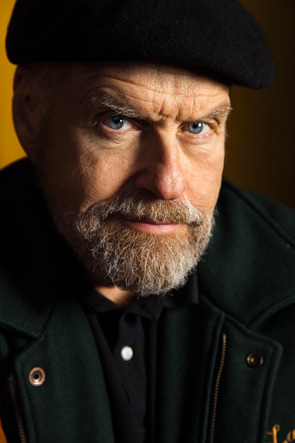 LB: Well, I had a story idea that turned into “Answers to Soldier.” Guy goes out to Oregon on business, makes the mistake of getting to know the quarry, has fantasies of quitting the business and making a life for himself similar to the guy’s, goes so far as to look at houses, then comes to his senses, kills the guy, and goes home. The hit man turned out to be Keller, and I wound up having a lot more to say about him.
LB: Well, I had a story idea that turned into “Answers to Soldier.” Guy goes out to Oregon on business, makes the mistake of getting to know the quarry, has fantasies of quitting the business and making a life for himself similar to the guy’s, goes so far as to look at houses, then comes to his senses, kills the guy, and goes home. The hit man turned out to be Keller, and I wound up having a lot more to say about him.
 TP: When I pick up one of your books, I know I’m getting great dialogue. The latest Matthew Scudder novel, A Drop of the Hard Stuff, begins with a conversation between Matt and Mick Ballou that I could have read for the entire book. George V. Higgins said “Dialogue is character and character is plot.” Do you think it boils down to that, or is there something more to it?
TP: When I pick up one of your books, I know I’m getting great dialogue. The latest Matthew Scudder novel, A Drop of the Hard Stuff, begins with a conversation between Matt and Mick Ballou that I could have read for the entire book. George V. Higgins said “Dialogue is character and character is plot.” Do you think it boils down to that, or is there something more to it?
 LB: Well, it was true for Higgins. It depends enormously on the writer. Some of us are intensely visual, for example. They know what all the people in their books look like, see the rooms in their lives fully furnished. What I tend to know most about my characters is what they sound like, how they express themselves.
LB: Well, it was true for Higgins. It depends enormously on the writer. Some of us are intensely visual, for example. They know what all the people in their books look like, see the rooms in their lives fully furnished. What I tend to know most about my characters is what they sound like, how they express themselves.
 TP: You’ve traveled the world, but your fiction is mostly set in New York. Keller seems the most widely traveled of your creations. I read a lot of New York authors, but when Scudder is walking around town or Bernie is scoping a building, I feel not only like I’m there, but that I’ve lived there and know the town. Which I don’t, except as a Jersey invader. What keeps your stories in New York and the States, when you’ve visited so many exotic locales?
TP: You’ve traveled the world, but your fiction is mostly set in New York. Keller seems the most widely traveled of your creations. I read a lot of New York authors, but when Scudder is walking around town or Bernie is scoping a building, I feel not only like I’m there, but that I’ve lived there and know the town. Which I don’t, except as a Jersey invader. What keeps your stories in New York and the States, when you’ve visited so many exotic locales?
 LB: New York has been home to me in a very fundamental way from the first time I came here. It’s as natural for me to have my characters live here as it is for me to live here myself. In the mid-80s my wife and I moved to South Florida, and I found myself wondering if I’d wind up setting most of my fiction there. I realized that I probably wouldn’t, that I had no real sense of the inner lives of people there. Thus I’d go on setting my stories in New York.
LB: New York has been home to me in a very fundamental way from the first time I came here. It’s as natural for me to have my characters live here as it is for me to live here myself. In the mid-80s my wife and I moved to South Florida, and I found myself wondering if I’d wind up setting most of my fiction there. I realized that I probably wouldn’t, that I had no real sense of the inner lives of people there. Thus I’d go on setting my stories in New York.
 TP: Keller’s stamp collecting has become almost as intriguing as his hits. I missed out on the last philatelic edition, but I snagged the one Mysterious Press is doing for HIT ME. (The philatelic edition is a special first edition that comes signed, with a special postage stamp affixed to the cover, and a souvenir sheet of stamps) I never collected stamps, but I did collect coins, then lost my collection to some unscrupulous movers. A pristine 1945-S Mercury dime will be my Rosebud, I imagine. There’s something about stamps, coins and bank notes besides the art and their monetary value–they’re tangible icons. I was a numismatist, and you’re a philatelist. Which both sound like kinky perversions, and to a degree they are. What stamps do you collect? Does Keller have your dream collection?
TP: Keller’s stamp collecting has become almost as intriguing as his hits. I missed out on the last philatelic edition, but I snagged the one Mysterious Press is doing for HIT ME. (The philatelic edition is a special first edition that comes signed, with a special postage stamp affixed to the cover, and a souvenir sheet of stamps) I never collected stamps, but I did collect coins, then lost my collection to some unscrupulous movers. A pristine 1945-S Mercury dime will be my Rosebud, I imagine. There’s something about stamps, coins and bank notes besides the art and their monetary value–they’re tangible icons. I was a numismatist, and you’re a philatelist. Which both sound like kinky perversions, and to a degree they are. What stamps do you collect? Does Keller have your dream collection?
 LB: Keller collects worldwide, 1840 to 1940, which his British Empire collection extending through the reign of George VI. Me too. How’s that for coincidence? Keller, of course, has a much better collection, because he had the sense to pick a far more lucrative profession.
LB: Keller collects worldwide, 1840 to 1940, which his British Empire collection extending through the reign of George VI. Me too. How’s that for coincidence? Keller, of course, has a much better collection, because he had the sense to pick a far more lucrative profession.
 TP: You’re a writer’s writer. I say that because you’ve written several books about writing that tell it straight, such as Telling Lies for Fun and Profit. One of my favorite quotes is when you respond to that ubiquitous cocktail party nightmare, the person who says they’d love to be a writer if they only had the time, as if it were a hobby, not a skill and a talent. You said no one says that to a pro ballplayer, and I took that to heart. Writers don’t get respect, and we’re often the last to get paid, if we get paid at all. Would you say that’s gotten better or worse?
TP: You’re a writer’s writer. I say that because you’ve written several books about writing that tell it straight, such as Telling Lies for Fun and Profit. One of my favorite quotes is when you respond to that ubiquitous cocktail party nightmare, the person who says they’d love to be a writer if they only had the time, as if it were a hobby, not a skill and a talent. You said no one says that to a pro ballplayer, and I took that to heart. Writers don’t get respect, and we’re often the last to get paid, if we get paid at all. Would you say that’s gotten better or worse?
 LB: It’s probably stayed about the same. One difference is that people tend to think we’re rich. They read about the contracts a couple of people get and figure we all make that kind of money. I remember Evan Hunter telling me how some clown from some college explainded that, for a donation of a mere ten million dollars, they could build a new dormitory and name it after him. “What kind of money do they think we make?” he marveled. On a lesser scale, but just barely, some well-meaning fool once advised me to charter a private plane for my book tours. Jesus. You go to some town, spend two hours in a bookstore, sign twenty books, with translates into what, $60 in royalties? It’s absurd enough for a publisher to fly you in coach, which is why book tours are finally coming to an inglorious end, but charter a fucking airplane?
LB: It’s probably stayed about the same. One difference is that people tend to think we’re rich. They read about the contracts a couple of people get and figure we all make that kind of money. I remember Evan Hunter telling me how some clown from some college explainded that, for a donation of a mere ten million dollars, they could build a new dormitory and name it after him. “What kind of money do they think we make?” he marveled. On a lesser scale, but just barely, some well-meaning fool once advised me to charter a private plane for my book tours. Jesus. You go to some town, spend two hours in a bookstore, sign twenty books, with translates into what, $60 in royalties? It’s absurd enough for a publisher to fly you in coach, which is why book tours are finally coming to an inglorious end, but charter a fucking airplane?
 TP: You’ve always been one of the most tech-savvy writers I know. You had your email address in your books 20 years ago. And in your fiction, you manage to get the reality of computers and cell phones into the stories without making them linchpins of the plot, where the tension hinges on how many bars of signal someone has. I liked how TJ was the go-to character for the non-technical Scudder. That worked, you acknowledged the Internet but kept his feet on the ground. People have arguments about cell phones in mystery stories. Do you think technology leaches the tension out of a mystery?
TP: You’ve always been one of the most tech-savvy writers I know. You had your email address in your books 20 years ago. And in your fiction, you manage to get the reality of computers and cell phones into the stories without making them linchpins of the plot, where the tension hinges on how many bars of signal someone has. I liked how TJ was the go-to character for the non-technical Scudder. That worked, you acknowledged the Internet but kept his feet on the ground. People have arguments about cell phones in mystery stories. Do you think technology leaches the tension out of a mystery?
 LB: I think it might. It certainly performs that function for life itself. Nobody gets to be alone anymore.
LB: I think it might. It certainly performs that function for life itself. Nobody gets to be alone anymore.
 TP: You’ve taken self-publishing head-on, releasing short stories, backlist titles written under pen names, and two short story collections: one of Matthew Scudder tales and another of Ehrengraf, the only lawyer I truly enjoy reading about. If you were a beginning writer, would you take advantage of self-publishing, or do you think the traditional route remains the best way to establish yourself?
TP: You’ve taken self-publishing head-on, releasing short stories, backlist titles written under pen names, and two short story collections: one of Matthew Scudder tales and another of Ehrengraf, the only lawyer I truly enjoy reading about. If you were a beginning writer, would you take advantage of self-publishing, or do you think the traditional route remains the best way to establish yourself?
 LB: I’m not sure I know the answer, and it’ll change in ten minutes anyway, given the current pace of change in and out of publishing. But from where I stand (well, sit, actually) self-publishing certainly appears to be the way the world is moving. It’s the best choice for an increasing number of writers—and it’s often the only choice.
LB: I’m not sure I know the answer, and it’ll change in ten minutes anyway, given the current pace of change in and out of publishing. But from where I stand (well, sit, actually) self-publishing certainly appears to be the way the world is moving. It’s the best choice for an increasing number of writers—and it’s often the only choice.
 TP: Thank you for indulging my questions. Before you go, what would you like for your last meal?
TP: Thank you for indulging my questions. Before you go, what would you like for your last meal?
HIT ME is available in the philatelic edition from LB’s bookstore, and his website is as you’d expect, LawrenceBlock.com …
Tagged: Belly up to the Bar, Books, Crime Fiction, Hit Me, Interviews, Keller, Lawrence Block, Matt Scudder, New York City, reading, Writing



December 12, 2012
What Readers Want
Agatho at Mysterious Matters, one of the more thoughtful yet acerbic mystery publishing blogs, is concerned of the disconnect between Editor and Reader. So (s)he has asked, much like the Beastie Boys, the eternal question:
So whatcha whatcha want?
Here’s my answer:
“I want well-written, character-driven fiction. I want to be hooked from the first line, and I do not want the flavor of the month, or stories so cemented in the genre that the tropes hold up the plot. If a character is well-defined, the plot will flow from the choices they make.
I prefer stories from the perspective of the victim or the victim’s family, or someone in a moral gray area. A criminal, an outsider, someone interesting. Not another amateur P.I. or even a cop unless there is something interesting and new brought to the table.
Procedurals rarely do it for me, with Tana French being the big exception, because her characters are so compelling.
Crime is everywhere. It is part of life. We overlook it every day- the accountant fudging the numbers for the boss, the violent neighbor with the slow-burning fuse, the girl at the strip club who gets picked up at the end of the night by the mobster who “owns” her.
We walk through a veil of human depravity every day, we blinder ourselves to it. I want stories that remove those blinders and make me angry that we tolerate it.”
What’s yours? I’d recommend you cut & paste your reply and post it at the MM blog as well. Make your voice heard.
And now, git down…
Tagged: Crime Fiction, Mysterious Matters, reading, Writing



December 11, 2012
Grace on Broadway
I took Firecracker to see GRACE on Broadway last week, a play starring Paul Rudd, Michael Shannon, Kate Arrington and the still-fierce Ed Asner. It is a funny but surprisingly dark and thoughtful look at the mechanics of faith, religious or otherwise, and how it changes how we adapt to what the universe throws at us.
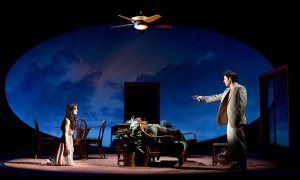
It begins with a murder-suicide, so you know what you’re getting into from the opening line. Then it dials back and shows what led up to it. The acting is phenomenal, and made me wish Rudd did more drama. He and Arrington play a couple from Minnesota who move to Florida for a real estate deal, to open a Gospel themed hotel chain. Michael Shannon plays a science geek who has survived what I call an everyday tragedy: the horrible things we hear of, but accept as normal until they happen to us or someone we care about.
Once they break through his bitter shell, he’s quite funny and a bit nerdy, not the usual Shannon character. Very refreshing. Ed Asner is a force of nature, and also plays against type. He is a German immigrant who survived the horrors of World War 2, which erased God from his universe. The story reveals how each character came to their faith or lack thereof, and is not about whether there is a God at the wheel of fate or not, but how the characters deal with the worst life has to offer. And yet, it still manages to be very funny between these heartrending epiphanies.
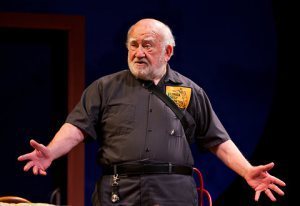
It’s not DOUBT, but it gives you plenty to think about. Which is stronger armor against the world, optimism or pessimism? If faith is your crutch, what happens when life kicks it out from under you?
GRACE runs at the Cort Theater in Manhattan until January 6th. If you’re a Paul Rudd fan, check the schedule. He has a sub during Hanukkah and I am not sure if he is returning.
Tagged: Broadway, Ed Asner, Grace, Kate Arrington, Michael Shannon, Paul Rudd, Plays, Religion



Thomas Pluck's Blog
- Thomas Pluck's profile
- 122 followers



